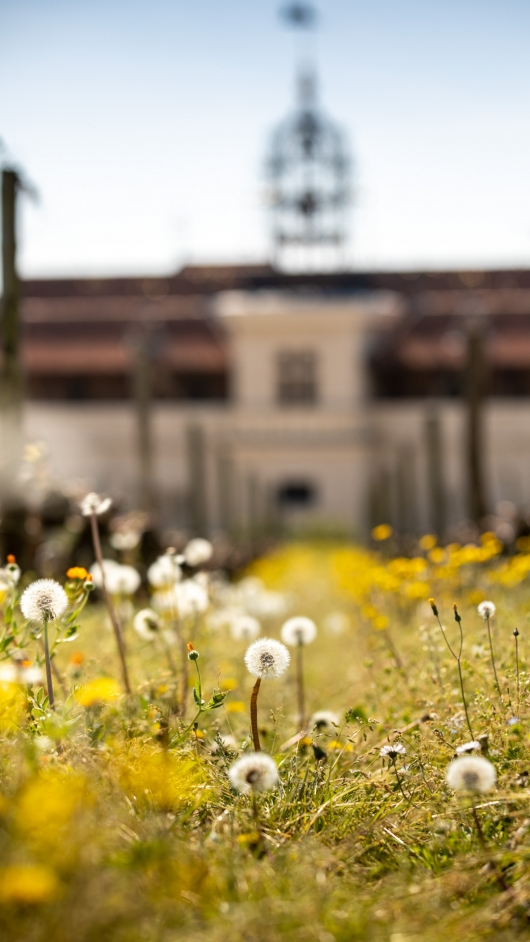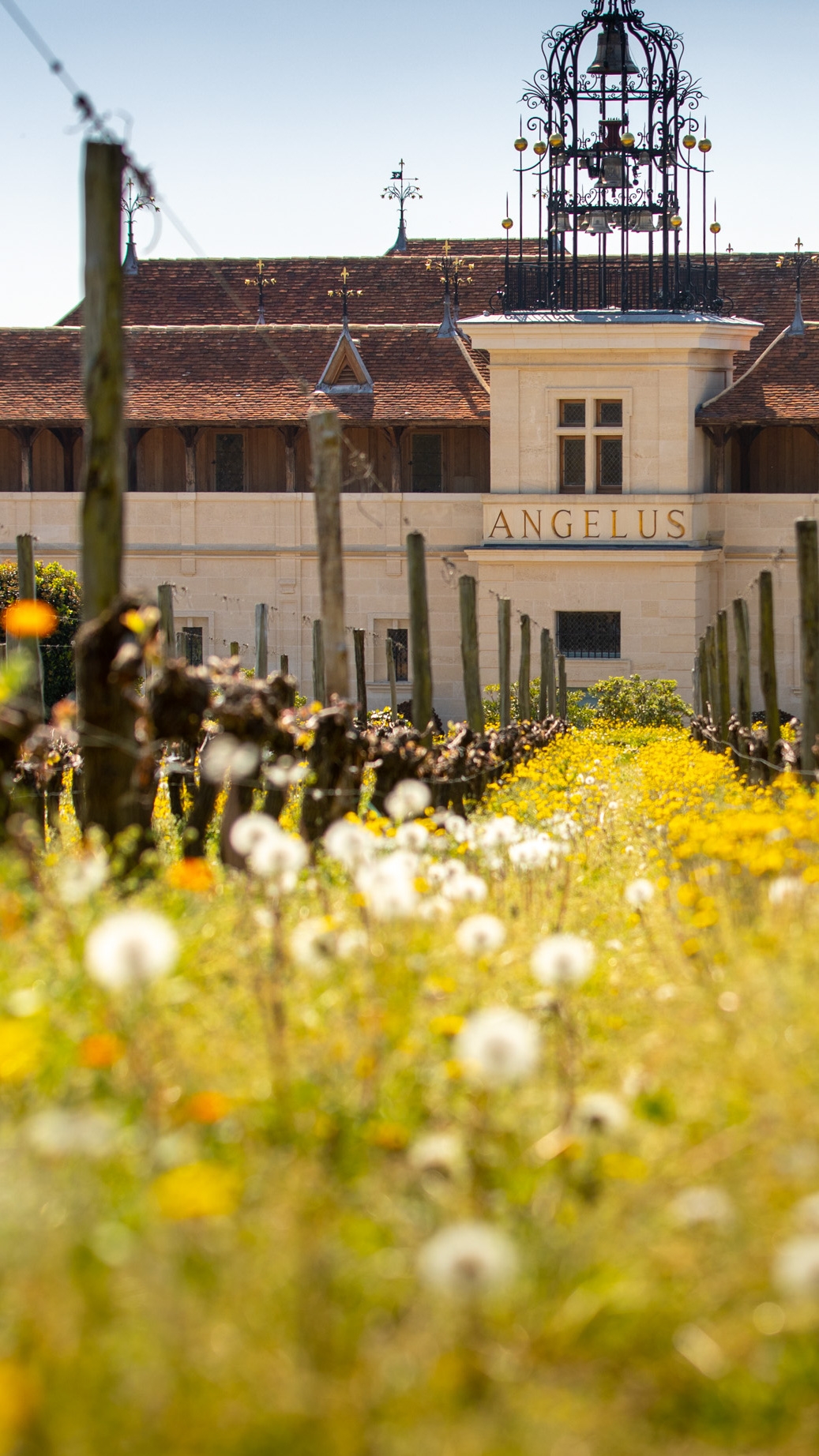
Angelus and Corporate Social Responsibility
An eco-friendly approach to vine-growing first appeared around forty years ago. Before then, the operating conditions of this profession
simply didn’t allow it.
As from the 1980s, an awareness developed. Growers acknowledged that terroir didn’t belong to man, he was simply its custodian. His duty was to pass it on intact to the future generations. Consequently, the amount of fertilisers used and the frequency of sprays decreased, while the size of crop yields became lower. The notion of quality was now more important than the volume of production. The term ‘reasoned viticulture’ (viticulture raisonnée) described this new approach, which marked the beginnings of a vine-growing revolution.
Consumers became more inquisitive. They now wanted to know what was going into the bottle. We were witnessing a gradual shift away from what are known as ‘conventional’ sprays towards an ‘agro-organic’ viticulture, i.e. no more synthetic molecules would be sprayed on the vines; only natural products would be used.
The change took a long time to complete. A succession of trials led to more eco-friendly practices emerging. For several years now, Château Angelus has implemented a sustainable strategy with three inseparable pillars at its base: the environment, social responsibility and the economy. Controlling our impact on the environment is a life choice, for families and the teams, as well as for the generations of vignerons to come. This is not posturing. Angelus must commit to a safe and responsible future.
We have relearnt how the soil functions and how the vines protect themselves. We have come back to a traditional natural vineyard setting, having planted trees and hedges within it, and in which an array of fauna, previously threatened, now finds its place again –birds, bats, insects, microbes and bacteria. All of this natural world prospers in the service of nature and ultimately of vines.
As regards the second area of our business activity: fine dining (also the most recent one), we have introduced an eco-friendly approach here, too. In addition to making the avoidance of food waste, and promoting local organic produce or that sourced from integrated farming our priorities, we have begun implementing a plan for our restaurants to grow their own fruit and vegetables, as well as to breed their own poultry and pigs. By supplying our own high quality produce, which will carry our own seal, this ‘organic farm’ will enable us to subsequently recycle any of our food waste (peelings included) and ‘bring the process full circle’, thus perfectly completing a virtuous cycle.


